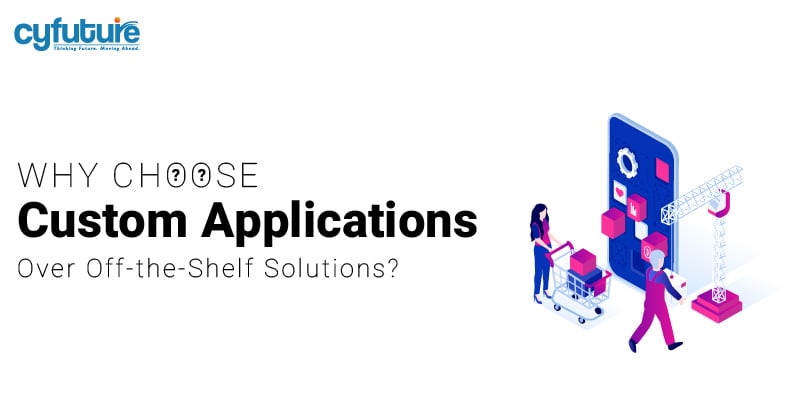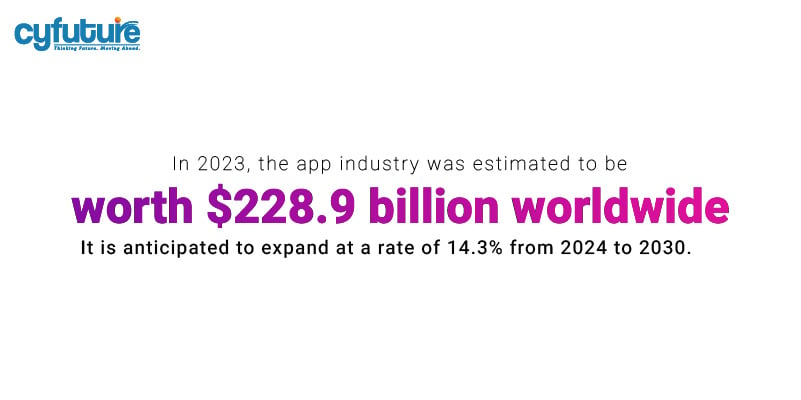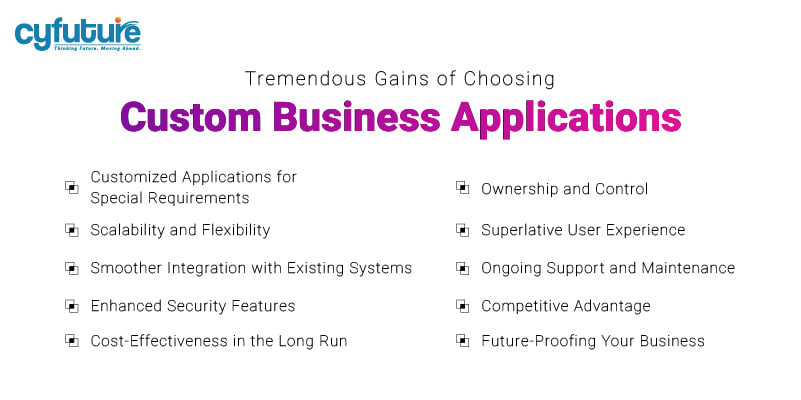-
Get Cloud GPU Server - Register Now!
Toggle navigation

In this world of rapid change, an appropriate choice of software solutions that work for a business is one of the most important decisions made. Do you go in for something off the shelf or for custom-application development that builds exactly as per the need of your business?
This question often has a hard-hitting debate with IT professionals and business leaders around the globe. But what if we told you that this choice could make all the difference in the efficiency and scalability of your business?
Imagine, if there was a software application that matched your business perfectly, enhancing the productivity of your operations as it scales easily with your business scale. Sounds too good, doesn’t it?
Well, this is a custom application. Custom business applications are not off-the-shelf solutions. Every one of these is developed and bases itself off specific requirements tailored just for you, giving a level of personalization and flexibility that generic software can never match.
In this piece, we outline why custom business applications are generally the best for businesses. Additionally, we will be talking about the fundamental differences between the two, making a comparison with off-the-shelf solutions, and discussing how investment in custom software can be the path to long-term success. Moreover, being either a small startup or even a rather large company, understanding the role of custom business application services can be a great game-changer for your business.
However, let’s look at a few stats and data before delving deep.

Now, let’s delve into the deep knowledge pool!
Off the Shelf Solutions are products already built as software products, intended to appeal to a mass crowd. They come fully equipped with features that might or might not meet your business needs. Furthermore, they are deployed very quickly and tend to be much cheaper up front but are limited in various ways that may not just create friction in your operations down the road.
Custom applications are built from scratch to fulfill some specific business requirement of the customer. A customized solution means that each feature is pertinent to your business processes. Besides, the case of an initial investment with a higher price paid will have return on investment in the long run far outweigh the cost.
| Off the Shelf Solutions | Custom Applications |
| Limited customized | Highly customized |
| Predefined set of features | Features are required |
| May or may not come with support | Comes with support |
| Fixed cost | Cost may vary based of customer’s requirement |

The most important benefit that an organization can receive by opting for customized applications is that they cater to specific business needs. All businesses are not alike, as each one performs things differently. Its processes, goals, and customer requirements differ, and thus off the shelf solutions require a business to bend their operations according to the application, causing ineffectiveness and frustration.
Contrastingly, Custom Software Application Development lets you develop a solution that is perfectly tailored towards the workflows that you require. Perhaps it is some specific reporting features, integration with existing systems, or even a user interface designed specifically for your team’s preferences; custom applications can be developed to meet these demands, and the level of personalization may bring much improved productivity and worker satisfaction.
Just like a business evolves in terms of needs, so can these needs scale along with custom applications and be sized properly as necessary. With a custom application, the need for off-the-shelf limitations in many dimensions is also released and can change over time to accommodate changing requirements.
In the long term, this custom App Development Service allows you to feature new capabilities, integrate emerging technologies, or even alter existing functionalities as your business evolves. This ability ensures your software remains relevant and effective despite the expanding operations.
Most businesses run on a blend of many software solutions. Therefore, among the high benefits associated with developing customized applications is the integration with the other systems in smooth operations.
Off-the-shelf solutions just can’t offer the kind of necessary compatibility, thus businesses have to replicate data entry or change between several platforms that leads to errors and inefficiencies. Using custom applications, they can configure them to be able to talk to your existing tools and this creates one broad ecosystem, hence making it enhance productivity.
Hackers and identity thieves thrive on the breach of sensitive information. Thus, security is at the top of the priority list for any business. Custom applications can be designed with all those features you may require for your business industry in robustly safe settings.
An off-the-shelf solution brings a generality of security features, but it cannot mitigate the vulnerabilities which your organization has. With a custom application, you can implement advanced security protocols and user authentication methods and data encryption directly pointed to the needs of your business.
Custom applications might be more expensive to develop than off-the-shelf solutions at the outset; however, such costs need to be put within the perspective of long-run expenses. Custom applications will deliver what you need precisely, not to mention save you from future additional modification costs or other software purchases.
Another related thing is the fact that this increased efficiency and productivity of custom applications mean long-run cost savings. Investment in Business Application Services can thus assure increased value from your software solution as your business evolves.
A developed application is completely owned and controlled by you. That is, you have the control over how it will be enhanced and evolved in the future as well as decide which feature to develop first. You can also structure how it is supported.
Off-the-shelf products come with licensing agreements, which normally limit your ability to modify the software or force you at their discretion to install updates. In a custom application, you can shape the solution into one that meets your business direction.
User experience is the critical aspect of the adoption as well as the effectiveness of any software solution. Applications may be planned keeping in mind the end-user, and it results in quite seamless and intuitive.
Off-the-shelf solutions usually have interfaces that are not so user-friendly or relevant for the operations of a business. Thus, custom applications enable you to design user-centered solutions wherein an interface is specifically designed for more productivity and lesser training time.
Actually, one of the major complaints about off-the-shelf solutions is the kind of support and maintenance provided with them. With customized applications, you enjoy the continued availability of the support of the development team should an issue arise, so you will have timely rectification of the problem.
With your team now closely working with the developers, you could fine-tune the application on it, update it, and enhance various aspects based upon user feedback. All of these would entrench a collaborative partnership in terms of your long-term success.
In a crowded marketplace, the battle is to stand out and be different. The user-defined applications enable you to innovate and offer features that solutions, in general, cannot differentiate from.
Because you tailor your software solution to meet your particular needs as well as to those of your customers, you build capabilities that generic solution users may not be able to match. That unique capability can provide dramatic growth opportunities for a company’s market share and loyalty from its customers.
Technology continues to evolve at a rapid pace, and if your business does not adapt to these changes, it simply becomes irrelevant. Custom applications can be designed to be able to foresee future growth and scale, but at the same time, provide for room for your software to catch up with new trends and technologies.
By working with a development team that is sharp-minded on answering what’s next, you can design a solution that listens to future needs, finds a way of integrating emerging technologies such as artificial intelligence or machine learning, and continues to scale with your business.
The choice of opting for off-the-shelf or in-house-made applications should be carefully weighed against the negatives and the positives. On the surface, while off-the-shelf software might seem like the shortcut that can save one money, the results this approach produces at its core can impair business development over time.
Custom applications provide the differences and the competitive edge that may be needed in meeting an enterprise’s unique requirements, making processes more efficient. The ability to scale them up with integrations also gives additional flexibility, and when it comes to focusing on user experience, custom applications are future-proof business options in a changing environment.
This is the investment you make with Business Application Services and Custom Software Application Development: it’s not just buying software; it’s kind of a partnership with those people who will be interested in your growth and success. Never settle for less-be it a picture of a custom application, even of the most important business vision, that eventually supports long-term goals.
Off-the-shelf solutions generally have a much lower cost to develop upfront. However, in the long term, they are often much more costly, not just in the additional software that might be needed but in inefficiencies that can ruin the completeness of any implementation and costly adjustments that sometimes must occur.
Custom application development time depends on your specific requirements’ complexity. An application with not very complex requirements may take a few months, and a complex solution may take half a year or longer. Collaboration with the team develops an application within a much shorter period of time and ensures delivery.
Yes, one of the prime benefits of custom applications is the fact that they may be perfectly integrated with your existing systems. That enhances better data flow, redundancy in efforts, and overall efficiency.
Absolutely. Custom applications are the only avenues through which you can innovate and offer unique features that will distinguish you from your competitors using generic solutions. With this approach, you can get more market share, loyalty from customers, and a better competitive advantage.
Yes, custom application development takes scalability into consideration. They can easily be modified and expanded for the changing needs of your business, so that your software remains effective as you continue to grow.